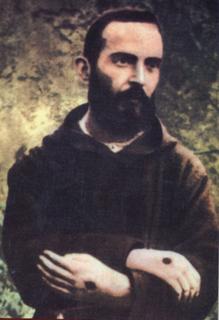The Cross of Christ Restores. . . The Image of God
And the LORD said to Moses, “Make a fiery serpent, and set it on a pole; and every one who is bitten, when he sees it, shall live.” So Moses made a bronze serpent, and set it on a pole; and if a serpent bit any man, he would look at the bronze serpent and live. NUMBERS 21:8–9
“When you have lifted up the Son of man, then you will know that I am he, and that I do nothing on my own authority but speak thus as the Father taught me. And he who sent me is with me; he has not left me alone, for I always do what is pleasing to him.” JOHN 8:28–29 Once when my wife and child were touring a large cathedral in the United States, a famous archbishop passed us by; a high-ranking cardinal, visiting the United States from the Vatican, followed him. The archbishop completely ignored us, but the cardinal stopped and took our baby in his arms, talking gibberish to him. We were moved by the actions of the cardinal, who had taken the gospel to heart. It is amazing how often Jesus took time to notice someone his disciples had passed by or ignored. In the kingdom of God, the first are last and the last are first. No one exemplified this principle better than Christ himself: the Prince of Heaven became a helpless infant, was raised in obscurity, and died like a criminal.
People who have seen Mel Gibson’s The Passion of the Christ are shocked by the violence. What should shock us more is the idea that the all-powerful God would subject himself to being treated in such a fashion by mere mortals. Yet Jesus said in the Scripture that people would realize that he was from God when men “lifted him up” on the cross. The way of the cross is the path of humility. So often we seek perfection in how we look, the way we dress, the way we speak, or in what we possess. Jesus told his disciples not to worry about any of these things but to seek God’s kingship over them first. Jesus then showed them how to do this. Then he took up his cross and invited them to follow. It is in those who accept that invitation that the divine image is most perfectly restored.
When Blessed Mother Teresa would visit one of her communities, the first thing she did was to pick up a broom and begin to sweep. Revered during her life as a saint, she sought no special treatment within her community; no task was beneath her. People who met Mother Teresa often remarked at the beauty of her deeply lined face. In her presence, they felt like they were in the presence of God. In the Image of the Father Jesus perfectly reveals to us what God is like. By following the way of the cross, we receive a divine “extreme makeover.” The path is not an easy one; our ego constantly tries to exert itself over us. Serpents in forbidden trees will whisper of easier paths. However, there is only one way to fulfill what God has planted in our hearts. “Truly, I say to you, unless you turn and become like children, you will never enter the kingdom of heaven,” Jesus warned his disciples (Matthew 18:3). Some people will go amazing lengths to retain their youth. Sadly, these same people will assiduously avoid the spiritual childhood that the gospel demands, the only sure path of eternal life.
Wandering in the desert, the Israelites complained about their lot, and God sent poisonous snakes. As people died around him, Moses prayed to God for mercy. God told Moses to make a fiery bronze serpent and to put it on a pole; all who looked upon this bronze serpent were healed of snakebite. This bronze image foreshadowed the healing tree of Christ; just as Moses had lifted up the serpent in the desert, Jesus told Nicodemus, so would he be lifted up on the cross, and all who would look upon him would be saved. We need to look at the cross of Christ to rediscover our soul’s inner beauty. God loves us so much that he died for us on that cross. As we gaze upon the cross of Christ, what really matters comes to the forefront in our lives, and we find we can let go of all the trivial pursuits that seem to dominate our time and thoughts. As the psalmist reminds us time and again, what matters is not to seek and be driven by the desire to please other people but to seek what pleases God. We will discover that not by hiding behind fig leaves, as our first parents did, but by coming to him whenever and wherever he calls us.





















